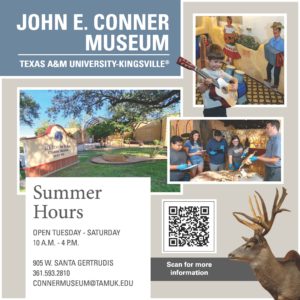Adaptation is difficult for anybody. Having a disability thrown in the mix makes change even more challenging. For Texas A&M University-Kingsville’s (TAMUK) English Professor Dr. Pamela Wright, the transition from in-person classes to virtual teaching because of COVID-19 has stripped her of the interaction she enjoys with her students.
“I love being in the classroom with my students; I love that energy,” Wright said. “The transition to remote teaching and learning has taken that away from me.”
While video conferences help alleviate some of the missed interaction with students, it does not completely fulfill the desire for hands-on learning.
Not only have teachers had to adapt to these changes, but the students have as well. Wright’s students adjusted to her style of teaching and the way she set up her classroom to accommodate her needs. Wright is deaf and has a cochlear implant, which has presented some additional challenges with online learning.
In face-to-face classes students used speakers in her classroom that connected to her implant. Wright also had a blue cube which had a microphone inside, that would get thrown around the classroom for students to speak into. With these adaptations, her students were able to communicate with her with little to no difficulty.
Because of these difficult times of having to go strictly remote, Wright has not been able to direct her classes as she would in face-to-face lectures.
Although the change has brought challenges along the way, many of the students who are taking her class have noticed that the change to asynchronous learning has not deterred Wright’s attitude towards teaching.
“Dr. Wright has done a great job adapting,” student Emma Hodges said. “Her passion for the literature she teaches shines through just as clearly as when she teaches in-person.”
An additional challenge of this transition is that Wright does not have a full-time interpreter, which results in occasionally making communication with students somewhat difficult.
Although TAMUK does provide Wright with an interpreter during meetings and presentations, she does not get one for her courses.
“[The transition] is not without its difficulties at times—especially for a deaf person who relies on lip reading and interpreters to help,” Wright said.
Throughout these difficult circumstances with COVID-19, Wright has not let it affect her teachings.
During this time, she has relied on uploading lectures and having video conferences with the students. While this does not completely feel the same as in-person teaching, it helps in lessening the missing of the interaction with students.
Although this makes the adjustment more difficult, it does not deter Wright’s ability to help students understand what she is teaching.
“Even with this change, Dr. Wright is still able to teach the fundamentals of literature and learning,” student Kyra Clark said.
Despite the challenges of having to move her courses online, Wright has proven that anything is possible with the ability to adapt to the changes.

